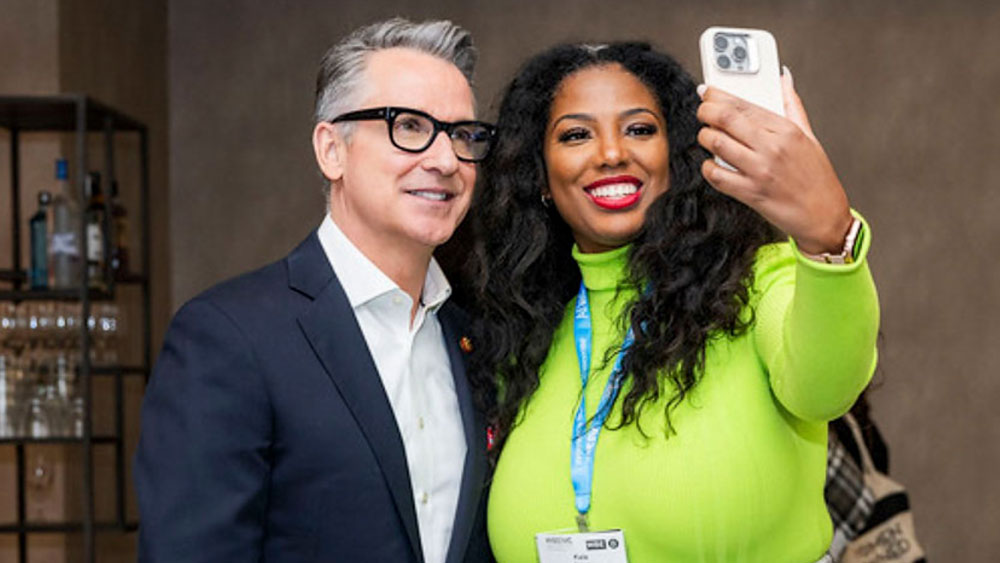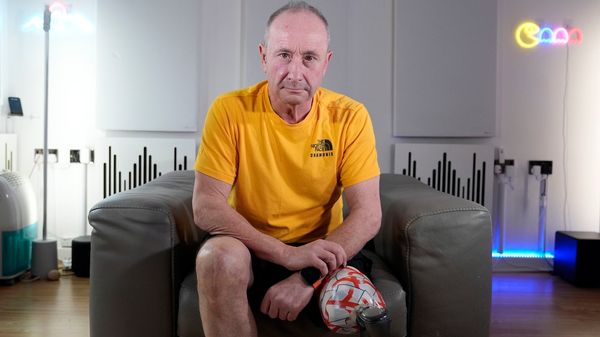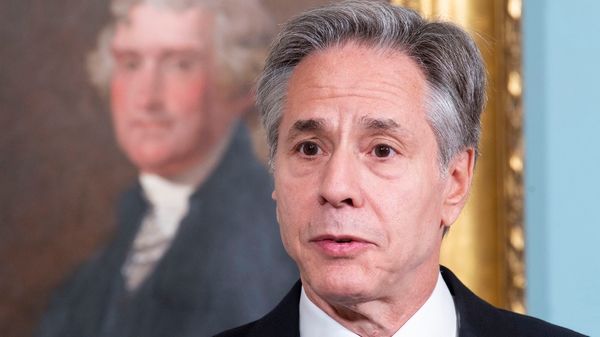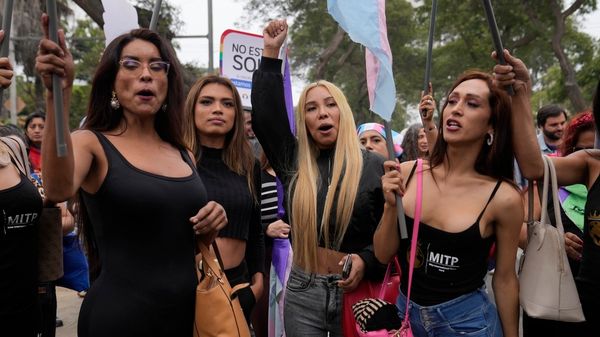March 25, 2013
Nation Poised for SCOTUS DOMA/Prop 8 Hearings
Antoinette Weil READ TIME: 6 MIN.
On Tuesday and Wednesday, Mar. 26 and 27, the Supreme Court of the United States will hear oral arguments in Hollingsworth v. Perry and United States v. Windsor, the cases that challenge the constitutionality of Proposition 8 and the Defense Of Marriage Act.
The first time the Supreme Court has taken up the issue of same-sex marriage, this historical case could have a monumental and lasting impact for LGBTQ individuals and families now and in the future. In light of the extreme importance of this issue and in preparation for the SCOTUS hearings, around the country this week LGBTQs and their allies will come together through rallies, vigils, and prayer services to show their support for marriage equality.
"There's a lot at stake here," said Lori Hensic, PharmD, director of Educational Affairs for the American Military Partner Association and Assistant Professor of Health Policy for UC San Diego. "There is great excitement bubbling over, but with that excitement there is a lot of nervousness and anxiousness."
Hensic will be speaking outside of the San Diego Federal Courthouse on Mar. 25 at 6 p.m. in what is expected to be one of the largest of these nation-wide support rallies.
This event, along with more than 150 around the country and 30 in California alone, will be hosted by the United for Marriage: Light the Way for Justice Coalition. Given that Prop 8 is a California statute, the SCOTUS hearings bear special significance for LGBTs and allies in the Golden State including Hensic and her partner Shaina, who plan to marry this summer.
"We really don't want to have to make travel arrangements and go to a state that isn't home and has no emotional significance just to get 'really' married," said Hensic. "If Prop 8 and DOMA were overturned, not only would our marriage be recognized in California but also in the rest of the country that I love."
Hensic's partner Shaina is a U.S. Marine Corps helicopter pilot and Squadron Department Head. There, on a smaller scale of American life, it is quite easy to see the differences that DOMA creates between heterosexual and same-sex marriages. The couple moves every two to four years for Shaina's military duty, but with no guarantee of work or of shared benefits for Hensic, the financial burden of this frequent relocating has taken a toll on their livelihood and on her career. Perhaps one of the most emotional disadvantages borne by same-sex military partners is the fact that if their spouse dies in service they will not be recognized as next-of-kin and will not be the first notified.
"We need to demonstrate to conservatives what it means to be an equal American and to serve in an equal way," said Hensic.
Here in Massachusetts, and in the other eight states that have legalized same-sex marriage, citizens have enjoyed the option to marry, but have not had recognition from the federal government nor from other non-marriage states that do not acknowledge same-sex marriage as legitimate.
"Everyone thinks Massachusetts is an equal state but there are still issues faced here," said Wes Ritchie, Organizing Director of Mass Equality. "Couples have been living in a state of second-class marriage."
Mass Equality, to promote solidarity and support for marriage equality, will host a massive Boston rally on Tuesday, Mar. 26 at 3 p.m. in Government Center. Mass Equality Executive Director Kara Suffredini will emcee the event and speakers will include MA Representative Carl Sciortino as well as Tim Coco, a Massachusetts man whose same-sex spouse was deported, despite their legal marriage, because of DOMA.
"We're cautiously optimistic because of our work and because of the trends," said Ritchie, noting the recent nod of support by Hillary Clinton and Republican Senator Rob Portman as well as polls suggesting a majority of Americans favor legalized same-sex marriage. "We see the momentum and we know its building on our side. Still there's apprehension."
While Ritchie, and Mass Equality, stays optimistic about a ruling favoring equality and deeming DOMA and Prop 8 unconstitutional, they are prepared for whatever outcome should occur.
"It would be a blow to the movement," said Ritchie, "but we are still organized, we still care, and our allies still care. The work doesn't pause while this happens."
Another area of mass support an outsider may not expect has come from faith communities around the country. Reverend Jamez Terry and the Metropolitan Community Church of Boston, an inclusive and affirming place of worship, joined in prayer for marriage equality during Sunday's service, and will also be holding a call for community prayer on Monday at 7:30 p.m. for its parishioners and anyone else who wishes to join from wherever they are in the city.
"Our congregation is spread out around Boston," said Terry. "We want people to pray from wherever they are on Monday night and perhaps, gathering the people they're with, there will be more people to spread the prayer around the city."
In recent times, people have moved away from the religious arguments surrounding same-sex marriage in favor of more concrete ideas of taxes, finances, adoption, etc. But Reverend Terry said that religion has a place in this argument and it is particularly important for people of faith. Terry noted that marriage equality is significant on multiple levels. One is giving people equality and recognition from the government in day-to-day life. The other, he said, is a symbolic level.
"Marriage isn't just legal," said Terry. "It's about covenant and commitment. Many people want it in a church with God. Having this covenant on the same level as one's peers is really symbolic and important."
"This is a really good opportunity not only for the Supreme Court but also for every American who is able to look at this issue objectively as something that affects not only LGBT couples, but all Americans," said Hensic.
Only time will tell what the SCOTUS decision will be, but whether on religious, legal, or simply emotional grounds, all LGBTQs and allies are encouraged to show support in one of the events in their area. There are vigils and rallies from Arkansas to Hawaii to Texas and Florida, and everywhere in between.
As Wes Ritchie puts it, "Equality is creeping into every community."






